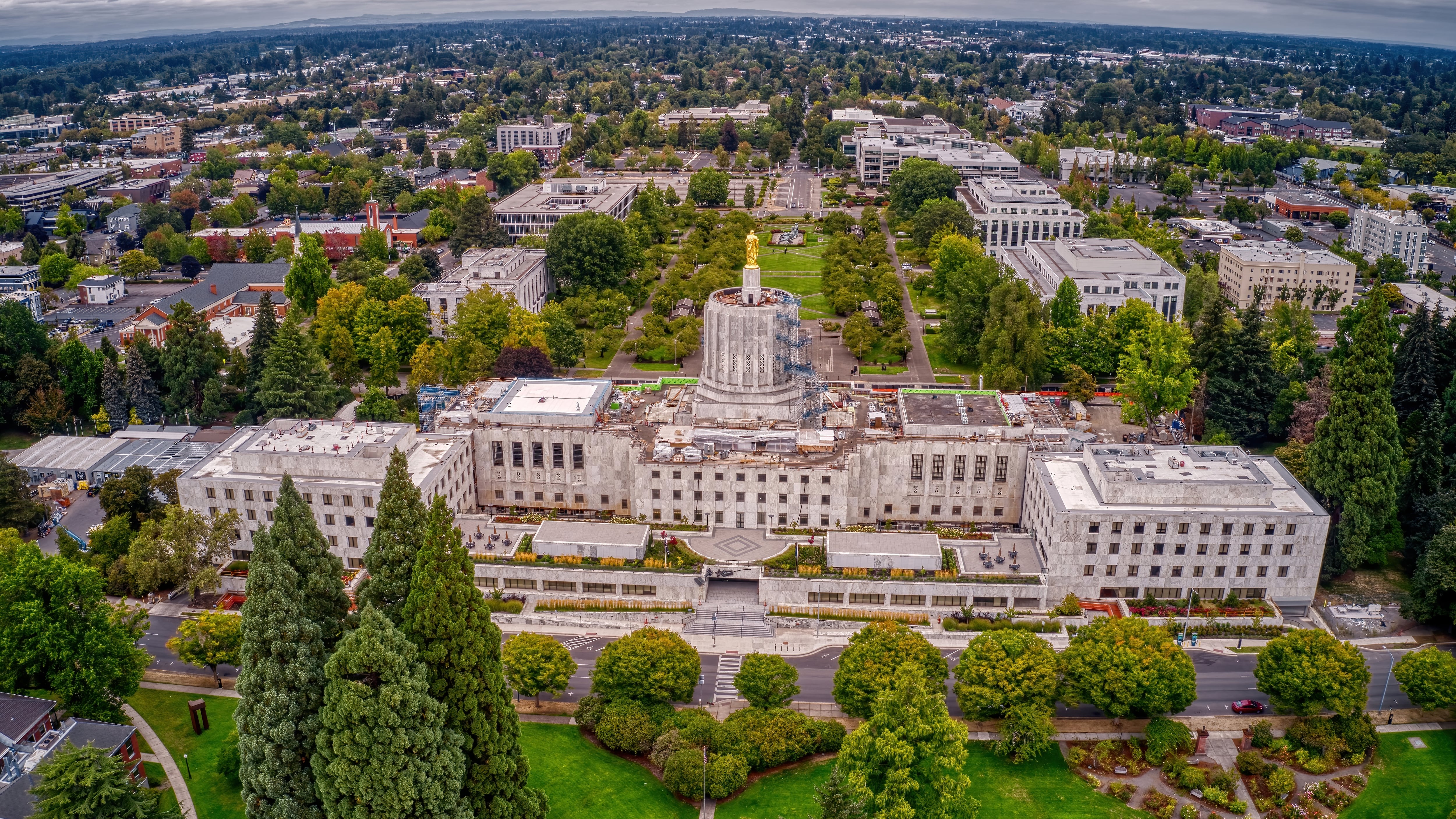Why was Salem (and not, say, Portland) chosen as the state capital? Was Salem the largest (or otherwise most important) city in Oregon at the time? How do they choose state capitals in the first place? —Teela L.
Upon initially receiving your message, Teela, my plan was to knock out a concise explanation of state capital selection with plenty of room left over for dick jokes. However, it turns out that, in Oregon’s case, at least, the process almost defies description. How did Salem become the state capital? How did Steve Urkel become a national treasure? Sometimes shit just happens.
Here’s what we do know: Our first proto-legislature convened in February of 1843, before Oregon was even a territory. Described, somewhat grandly, as a “full meeting of the inhabitants of the Willamette Valley,” it boasted 11 attendees. They met in Oregon City, mostly because that’s where they already lived.
The territorial legislature continued to meet in the O.C. until 1850, when it decreed that henceforth Oregon’s capital should be in Salem, its university in Corvallis, and its penitentiary in Portland. (We weren’t in the running for capital, but at least we eventually foisted the state pen off on Salem. No backsies!)
What no one seems able to explain, however, is the rationale for the Salem move. Did Oregon City’s hilly geography make constructing large buildings seem challenging? Did the Methodist mission in Salem (that eventually became Willamette University) look promising for housing government functions? Did corrupt pols simply hope to goose the value of Salem-area real estate? We may never know for sure.
We do know, however, that the territorial governor hated the idea, going so far as to ignore the legislature’s will through dubious executive actions. (Thank God nothing like that could happen today.) At one point, half of the government was convening in Salem and half in Oregon City. The U.S. Congress had to settle the fight, affirming Salem’s claim in 1852.
There’s more! Corvallis was briefly declared the capital in 1855. Congress, who had just paid for a capitol building in Salem, refused to pony up for another in Corvallis. Someone then burned the Salem capitol to the ground, presumably to strengthen Corvallis’ claim. Finally, the legislature called a public vote. Salem won handily, and the matter was settled. (Though I still think it would be more fun if the legislature convened in Wanker’s Corner.)
Questions? Send them to dr.know@wweek.com.

